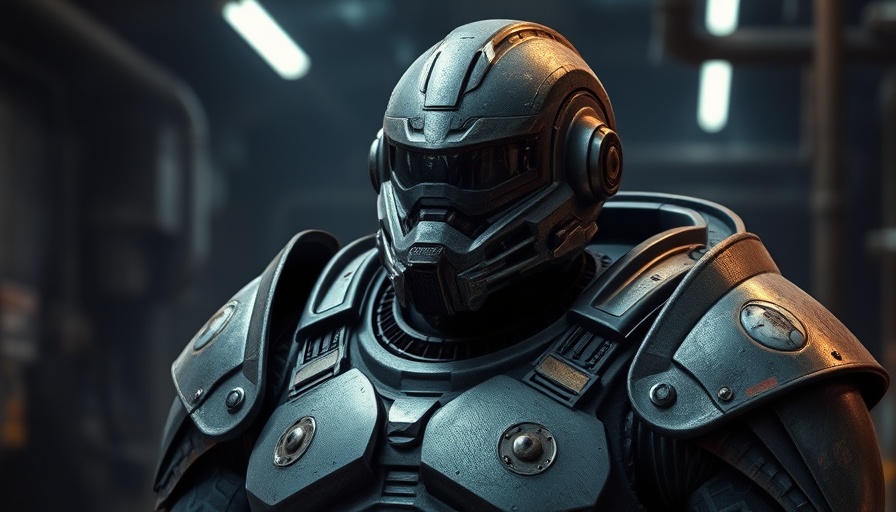
AI Protections for Video Game Actors: Historic Agreement Reached
In a significant development for the gaming industry, Hollywood video game voice and motion-capture actors have signed a groundbreaking contract aimed at safeguarding their rights against the rapid advancements in artificial intelligence (AI). This agreement, reached by the actors' union SAG-AFTRA, highlights the increasing concern over how AI can be ethically integrated into the creative processes of video games.
The Role of AI in Gaming: A Double-Edged Sword
The new contract emerges in response to a growing recognition of AI's potential to impact the workforce in various creative industries, not only in gaming. With AI becoming capable of creating realistic digital replicas of human performers, it has raised pressing questions about consent and fair compensation. Sarah Elmaleh, a prominent voice actor known for her roles in games like Final Fantasy XV, expressed the necessity of establishing ethical guidelines to ensure performers are acknowledged and protected in this evolving landscape.
Key Features of the New Agreement
Among the most prominent features of the new Interactive Media Agreement are the consent and disclosure requirements for the use of AI-generated digital replicas. This provision allows actors to control how their likeness and voice are employed in the gaming world—an essential workplace right as AI technology continues to evolve rapidly. Moreover, performers will now have the power to suspend their consent for generating new materials if they feel that their rights are being violated.
Wage Increases and Performer Safety: A Crucial Focus
The agreement does not just focus on AI protections; it also provides substantial financial benefits for the performers. SAG-AFTRA reported a staggering 15.17% pay increase effective immediately, followed by additional 3% increases slated for November in 2025, 2026, and 2027. These increases reflect the industry's commitment to ensuring a fair wage for voice and motion-capture actors who contribute significantly to the immersive experiences within video games.
Health and Safety Improvements: Enhancing Performer Experience
One of the noteworthy aspects of the new agreement is the enhanced safety measures, particularly for motion-capture actors who undergo physically demanding roles. As Elmaleh highlighted, they often risk their physical well-being to bring virtual characters to life. The agreement mandates medical personnel on-site for high-risk performances, ensuring that health and safety are prioritized in this high-stakes industry.
Lessons from the Broader Industry Context
This agreement is particularly relevant in light of recent strikes across Hollywood, where writers and actors have also raised concerns about AI's impact on their creative rights. The collective push for stronger labor laws, such as the NO FAKES Act, underscores a significant shift in how the industry views AI and its implications for performers' livelihoods. This bipartisan bill, supported by a coalition of unions and industry groups, aims to make it illegal to replicate someone’s likeness and voice using AI without their explicit permission.
Looking Ahead: Future Implications for the Gaming Industry
The video game sector is on the threshold of significant changes as these agreements set a precedent for how AI can be ethically and legally integrated into creative processes. With actors empowered to negotiate the terms of their digital likenesses and protect their rights, the industry may see a shift towards greater transparency and ethical practices, fostering a more sustainable and respectful work environment for all creative talents involved.
Why This Matters to Gamers and Fans
For hobbyists and fans of video games, these developments carry immense implications. The growing involvement of unions and advocacy groups in protecting creators ensures that the industry remains vibrant with diverse narratives and artistic expressions. As AI continues to redefine the landscape, gamers can expect to see a mix of innovative storytelling complemented by the assurance that their favorite voices and characters are authentically represented by human artists who can control their contributions.
The ratification of this agreement marks not just a victory for the actors but a foundational shift in how the gaming world will navigate future technological advancements. For players who value storytelling and character authenticity, this is a reason to celebrate as it ensures a more human-centric approach to gaming creativity.
In conclusion, understanding the implications of these protective measures for video game actors doesn't just enhance our appreciation for the digital characters we love; it also champions the rights and dignity of those who breathe life into these roles. As the industry progresses, staying informed and advocating for ethical practices will pave the way for gamers and creators alike.
 Add Row
Add Row  Add
Add 




 Add Row
Add Row  Add
Add 

Write A Comment